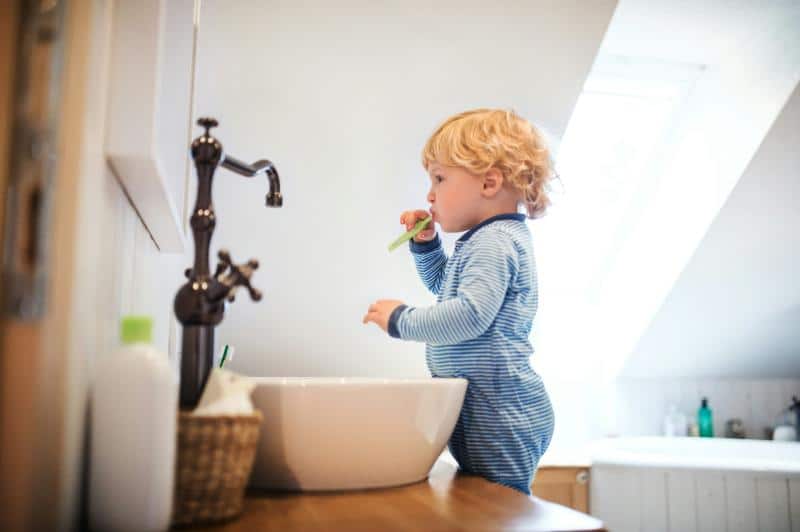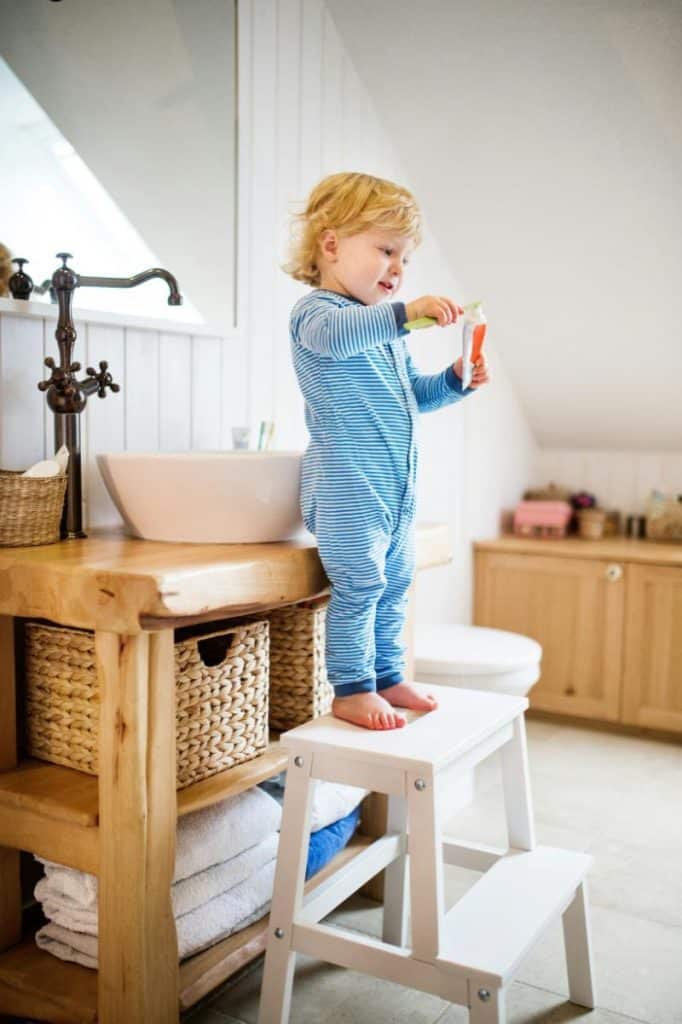Maintaining good dental hygiene is crucial for everyone, but instilling healthy oral habits in children is especially important. Teaching kids proper dental care not only ensures a bright smile but also contributes to their overall well-being. As a parent, you play a pivotal role in guiding your children toward optimal oral health. By implementing effective strategies and creating a supportive environment, you can help your kids develop habits that will benefit them for a lifetime. In this comprehensive guide, we’ll explore various techniques and tips to assist you in improving your kids’ dental hygiene.

Start Early and Lead by Example
It’s never too early to begin teaching your children about dental hygiene. As soon as their first tooth emerges, you should introduce them to the concept of brushing and flossing. Use a soft, age-appropriate toothbrush and a tiny smear of fluoride toothpaste to clean their teeth. Make brushing a fun and interactive experience by singing songs or using colorful toothbrushes. Additionally, children learn by observing, so be sure to demonstrate proper brushing and flossing techniques yourself. When they see you prioritizing dental care, they’re more likely to follow suit. Remember, consistency is key; establish a daily routine and stick to it.
Educate About the Importance of Oral Health
Educating your children about the significance of oral health can motivate them to take better care of their teeth and gums. Explain in simple terms why brushing, flossing, and regular dental check-ups are essential. Emphasize the connection between oral hygiene and overall health, highlighting how neglecting dental care can lead to cavities, gum disease, and even systemic health issues. Use age-appropriate books, videos, or online resources to reinforce these concepts. Additionally, discuss the consequences of poor oral hygiene, such as toothaches or bad breath, to illustrate the immediate effects of neglecting dental care.
Foster Positive Associations with Dental Visits
Many children dread visiting the dentist due to fear or anxiety. However, regular dental check-ups are vital for maintaining optimal oral health. To alleviate their apprehensions, choose a gentle and experienced dentist who specializes in pediatric care. Establish a trusting relationship with the dentist and dental staff to create a comfortable environment for your child. Before the appointment, explain what will happen during the visit reassuringly. Encourage your child to ask questions and express any concerns they may have. After the visit, praise them for their bravery and reward them with a small treat or activity.
Limit Sugary Snacks and Drinks
Diet plays a significant role in oral health, so it’s essential to monitor your children’s intake of sugary snacks and drinks. Excessive consumption of sugary foods can fuel the growth of harmful bacteria in the mouth, leading to tooth decay and cavities. Encourage healthy eating habits by providing nutritious snacks like fruits, vegetables, cheese, and yogurt. Limit the availability of sugary treats in your home and reserve them for special occasions. When offering sugary foods or drinks, encourage your children to consume them with meals rather than as standalone snacks.
Emphasize Proper Brushing and Flossing Techniques
Effective brushing and flossing techniques are fundamental to maintaining good oral hygiene. Teach your children the correct way to brush their teeth, emphasizing the importance of reaching all surfaces, including the front, back, and chewing surfaces. Use a pea-sized amount of fluoride toothpaste and instruct them to brush for at least two minutes twice a day. Demonstrate the proper brushing motion, ensuring they brush gently to avoid damaging their gums or enamel. In addition to brushing, teach them how to floss properly to remove plaque and food particles from between their teeth.
Establish a Reward System and Provide Positive Reinforcement
Positive reinforcement can be a powerful tool in motivating children to prioritize dental hygiene. Create a reward system to acknowledge and celebrate their efforts in maintaining good oral health. For example, you could use a sticker chart where they earn a sticker for each day they brush and floss correctly. Once they accumulate a certain number of stickers, offer a special reward such as a trip to the park or a small toy. Praise and encouragement are also essential components of positive reinforcement. Acknowledge their accomplishments and express pride in their commitment to dental care.
Monitor and Celebrate Progress
Regularly monitoring your children’s dental hygiene habits allows you to track their progress and address any issues promptly. Keep an eye on their brushing and flossing routines, providing gentle reminders or assistance when needed. Pay attention to any changes in their oral health, such as bleeding gums or tooth sensitivity, and address them promptly by consulting a dentist. Celebrate milestones and achievements along the way to keep them motivated and engaged.

In conclusion, helping your kids improve their dental hygiene requires patience, consistency, and a proactive approach. Start early, lead by example, and educate them about the importance of oral health. Foster positive associations with dental visits by choosing a dentist who specializes in pediatric care. Limit sugary snacks and drinks, emphasize proper brushing and flossing techniques, and establish a reward system to encourage positive behavior. By implementing these strategies and creating a supportive environment, you can empower your children to develop lifelong habits that will contribute to their overall well-being and happiness.
